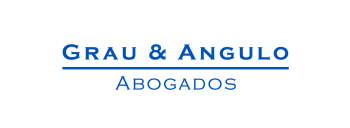Two recent Alicante Community Trademark Court No 2 judgments have confirmed that the use of a well-known mark as a corporate name and as a domain name – among other things – constitutes trademark infringement.
In its January 26 2016 judgment the Alicante Community Trademark Court No 2 held companies Minicoche Madrid, SL and Vesulia, SL – among others – liable for trademark infringement for the adoption and use of the MINI trademarks owned by German company Bayersiche Motoren Werke (BMW) as a corporate name, domain name and distinctive sign for car sales services. In particular, the defendants had used the MINICOCHE sign to identify their businesses, which they had advertised on the website corresponding to the domain name 'minicoche.com'. Moreover, one of the defendants had adopted the corporate name Minicoche Madrid, SL.
The court was satisfied that the well-known character of BMW's MINI trademarks had been proven and declared the infringement, taking into consideration the fact that the different uses had led to confusion and amounted to taking unfair advantage of the reputation of BMW's trademarks. The court also considered that in all conflicting uses, the well-known MINI trademarks had been followed by descriptive terms such as 'coche' (ie, car), '.com' and 'Madrid'.
Following the Supreme Court case law, the court found that the corporate name Minicoche Madrid, SL constituted infringement due to its presence in commerce, insofar as it had been used as a domain name and on the defendant's website.
Finally, the court revoked one of Minicoche Madrid, SL's trade names – consisting of the sign MINICOCHE.COM (figurative) – as it had not been put to real and genuine use in connection with the services it had been registered for (ie, Class 35 – advertising, management of commercial businesses, commercial administration and office work), but was used to distinguish automotive sales services.
The lawsuit was fully upheld and the court ordered the defendants to bear the costs of the proceedings.
Orange Brand Services Ltd obtained a similar outcome in the Alicante's Community Trademark Court No 2 judgment of February 11 2016. In this case, the plaintiff sued Orange Mobile, SL for national and Community trademark infringement for:
- the adoption of its corporate name;
- the registration and use of the domain name 'orangemobile.es'; and
- the use of its graphic mark, consisting of an orange square, on its website.
First, the court analysed the limitation period of the action for cancellation of the domain name – which had been registered in 2005 – establishing that:
- the cease-and-desist letters sent by a third-party non-rights holder had interrupted the limitation period, as they implied authorisation from the rights holder (even if it was ex post facto);
- the limitation period had begun when the infringement became known, rather than when the domain name was registered. Moreover, it was for the defendant to prove that such use was known by the plaintiff; and
- by continuously having the sign on its website – and in accordance with the continuous wrongful act principle – the infringing conduct had subsisted. Therefore, the limitation period had not begun.
Once satisfied that the well-known character of the ORANGE trademarks in Spain had been proven, the court examined the 'orangemobile.es' domain name and determined that its registration as such did not amount to infringement. However, due to the nature of the sign and its use in conjunction with the term 'mobile' – clearly linked to mobile phone products – it would not be possible to use the domain name without infringing the ORANGE trademarks. The court therefore proceeded with the cancellation.
Finally, with regard to the corporate name Orange Mobile, SL, the court established that the defendant's use of the name was beyond mere identification as the subject of rights and obligations under corporate law. The corporate name had been used on the defendant's website to offer services, in its domain name and as a trade name – even featuring in phone distributor lists. Therefore, its use constituted trademark infringement.
In both judgments, the court decreed modification of the corporate names that were found to constitute trademark infringement. The infringing parties must adopt new names that do not include the well-known marks within one year or the companies will be dissolved.
For further information on this topic please contact Núria Ribera? at Grau & Angulo by telephone (+34 93 202 34 56) or email ([email protected]). The Grau & Angulo website can be accessed at www.gba-ip.com.
This article was first published by the International Law Office, a premium online legal update service for major companies and law firms worldwide. Register for a free subscription.



